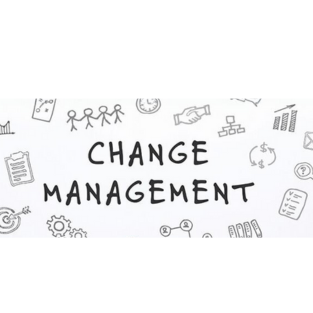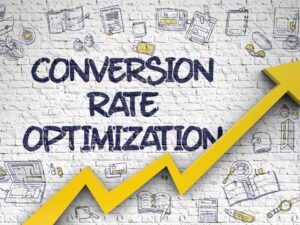Change Management in Modern Organizations
- Description
- Curriculum

In today’s rapidly evolving business landscape, change is the only constant. Organizations that can effectively navigate change thrive, while those resistant to it struggle to survive.
This comprehensive course equips you with the knowledge and skills to become a champion of change management within your organization.
We’ll enquire into the various models and frameworks for implementing change, explore strategies for overcoming resistance, and learn how to build a culture of adaptability and continuous improvement.
Whether you’re a leader spearheading a major transformation, a manager supporting your team through transitions, or simply someone curious about the psychology of change, this course empowers you to embrace change as an opportunity for growth and success.
Course Objectives:
- Gain a comprehensive understanding of the core concepts and principles of change management.
- Explore various change management models and frameworks, such as Kotter’s 8-Step Change Model and ADKAR Model.
- Develop strategies for identifying the need for change within your organization.
- Master the art of building a compelling case for change to gain buy-in from stakeholders.
- Learn effective communication strategies for managing change throughout the organization.
- Develop techniques for overcoming resistance to change and fostering a culture of adaptability.
- Understand the role of leadership in championing and guiding change initiatives.
- Explore strategies for measuring the success of change initiatives and ensuring long-term sustainability.
Course Highlights:
The Landscape of Change Management:
- Demystify the concept of change management and its importance in today’s dynamic business environment.
- Analyze the impact of various internal and external factors driving change within organizations.
- Explore the different types of change (e.g., transformational, incremental) and their unique challenges.
Change Management Models and Frameworks:
- Learn about established change management models, such as Kotter’s 8-Step Change Model and ADKAR Model.
- Understand the key stages of successful change management, from identifying the need for change to achieving sustainability.
- Analyze the strengths and weaknesses of different models and choose the approach best suited for your specific change initiative.
Building a Case for Change:
- Develop strategies for identifying the need for change within your organization and gathering data to support your case.
- Learn to articulate a compelling vision for the future state and clearly communicate the benefits of change.
- Master the art of persuasion to gain buy-in from stakeholders at all levels.
Communication and Change Management:
- Explore the critical role of communication throughout the change process and develop effective communication strategies to keep stakeholders informed and engaged.
- Learn to communicate transparently and address concerns during times of change.
- Utilize various communication channels (e.g., town halls, email campaigns) to disseminate information effectively.
Overcoming Resistance to Change:
- Understand the psychological reasons behind resistance to change and identify common resistance behaviors.
- Develop strategies for managing resistance constructively, addressing concerns, and fostering a culture of open communication.
- Learn techniques for building trust and engaging employees throughout the change process.
Leadership and Change Management:
- Analyze the critical role of leadership in championing and guiding change initiatives.
- Explore leadership styles effective in navigating change and motivating teams during transitions.
- Develop your own leadership skills to become a driving force for positive change within your organization.
Measuring Change Management Success:
- Understand the importance of measuring the success of your change initiatives and demonstrating the return on investment (ROI).
- Learn to define key performance indicators (KPIs) to track progress and identify areas for improvement.
- Explore strategies for evaluating the long-term sustainability of implemented changes.
Target Audience:
- Leaders spearheading major organizational transformations.
- Managers supporting their teams through change initiatives.
- Change Management professionals facilitating organizational transitions.
- Human Resources professionals implementing new policies and procedures.
- Anyone interested in understanding and adapting to change in the workplace.
-
1Nvidia New Technologies Slides
Welcome to your first slider tutorial. This slides will start with a simple introduction. Then, You will open up google cause I"ll show you where you can download the blender software and which version of it will we be using in the entire course period.
Note: The download link is available with the lecture, plus the .pdf file is also included for you to download if you still need help downloading the software.
-
2Engine Target Audience
-
3Quiz: Mobile / Native Apps
-
4Realistic Graphic on UE4
-
5Volta GPU for optimization.
The Tensor Core GPU Architecture designed to Bring AI to Every Industry. Equipped with 640 Tensor Cores, Volta delivers over 100 teraflops per second (TFLOPS) of deep learning performance, over a 5X increase compared to prior generation NVIDIA Pascal architecture.
-
6Deep Learning








